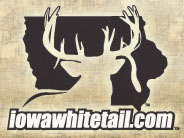blake
Life Member
Proper Disposal of Deer Remains
Disposal of deer remains may not be the highlight of a hunting trip, but it's an important aspect of hunting, particularly in maintaining the hunter's image.
Hunters should realize that improperly disposing of deer remains presents a negative public image. It also provides a legitimate point of criticism that can be used by people who oppose hunting.
Deer hunters should also remember not to display harvested game where it might offend non-hunting members of the public. When transporting a deer in the back of a truck or on top of a vehicle, hunters should wrap a tarp or other covering material around the animal. This is a simple, considerate step that may prevent a non-hunter from becoming an anti-hunter.
The DNR occasionally gets calls from people who find deer remains on their property, alongside roads or on the ground at dumpster sites, and the callers are usually pretty disgusted.
Proper preparation of harvested deer from the forest to the table is an important part of hunting. Heads, hides and entrails should be buried at least 2 to 3 feet deep so dogs or other animals won't dig up the remains and drag them around. Alternatively, hunters can take the remains to their local landfill provided the landfill accepts animal carcasses.
Sportsmen hunting on Wildlife Management Areas often field dress their deer but the entrails should be disposed of properly, not just left on the ground. Never, under any circumstances, should remains be thrown into streams or other bodies of water.
Properly disposed deer remains will soon be taken care of by decomposition and insects because nature wastes no nutrients. It's part of nature's recycling program. Composting deer remains solves the dilemma hunters face in properly disposing of deer carcasses, and it also yields a valuable byproduct that can be used to fertilize next year's food plots.
Hunters should also keep in mind that people who discard deer remains on private or public property can be cited for littering.
Behavior by hunters like improper disposal of deer remains promotes the kind of negative image that anti-hunters use in their attempts to ban hunting. Landowners who find a mess on their property may also have second thoughts about allowing access to hunters next season.
Disposal of deer remains may not be the highlight of a hunting trip, but it's an important aspect of hunting, particularly in maintaining the hunter's image.
Hunters should realize that improperly disposing of deer remains presents a negative public image. It also provides a legitimate point of criticism that can be used by people who oppose hunting.
Deer hunters should also remember not to display harvested game where it might offend non-hunting members of the public. When transporting a deer in the back of a truck or on top of a vehicle, hunters should wrap a tarp or other covering material around the animal. This is a simple, considerate step that may prevent a non-hunter from becoming an anti-hunter.
The DNR occasionally gets calls from people who find deer remains on their property, alongside roads or on the ground at dumpster sites, and the callers are usually pretty disgusted.
Proper preparation of harvested deer from the forest to the table is an important part of hunting. Heads, hides and entrails should be buried at least 2 to 3 feet deep so dogs or other animals won't dig up the remains and drag them around. Alternatively, hunters can take the remains to their local landfill provided the landfill accepts animal carcasses.
Sportsmen hunting on Wildlife Management Areas often field dress their deer but the entrails should be disposed of properly, not just left on the ground. Never, under any circumstances, should remains be thrown into streams or other bodies of water.
Properly disposed deer remains will soon be taken care of by decomposition and insects because nature wastes no nutrients. It's part of nature's recycling program. Composting deer remains solves the dilemma hunters face in properly disposing of deer carcasses, and it also yields a valuable byproduct that can be used to fertilize next year's food plots.
Hunters should also keep in mind that people who discard deer remains on private or public property can be cited for littering.
Behavior by hunters like improper disposal of deer remains promotes the kind of negative image that anti-hunters use in their attempts to ban hunting. Landowners who find a mess on their property may also have second thoughts about allowing access to hunters next season.


